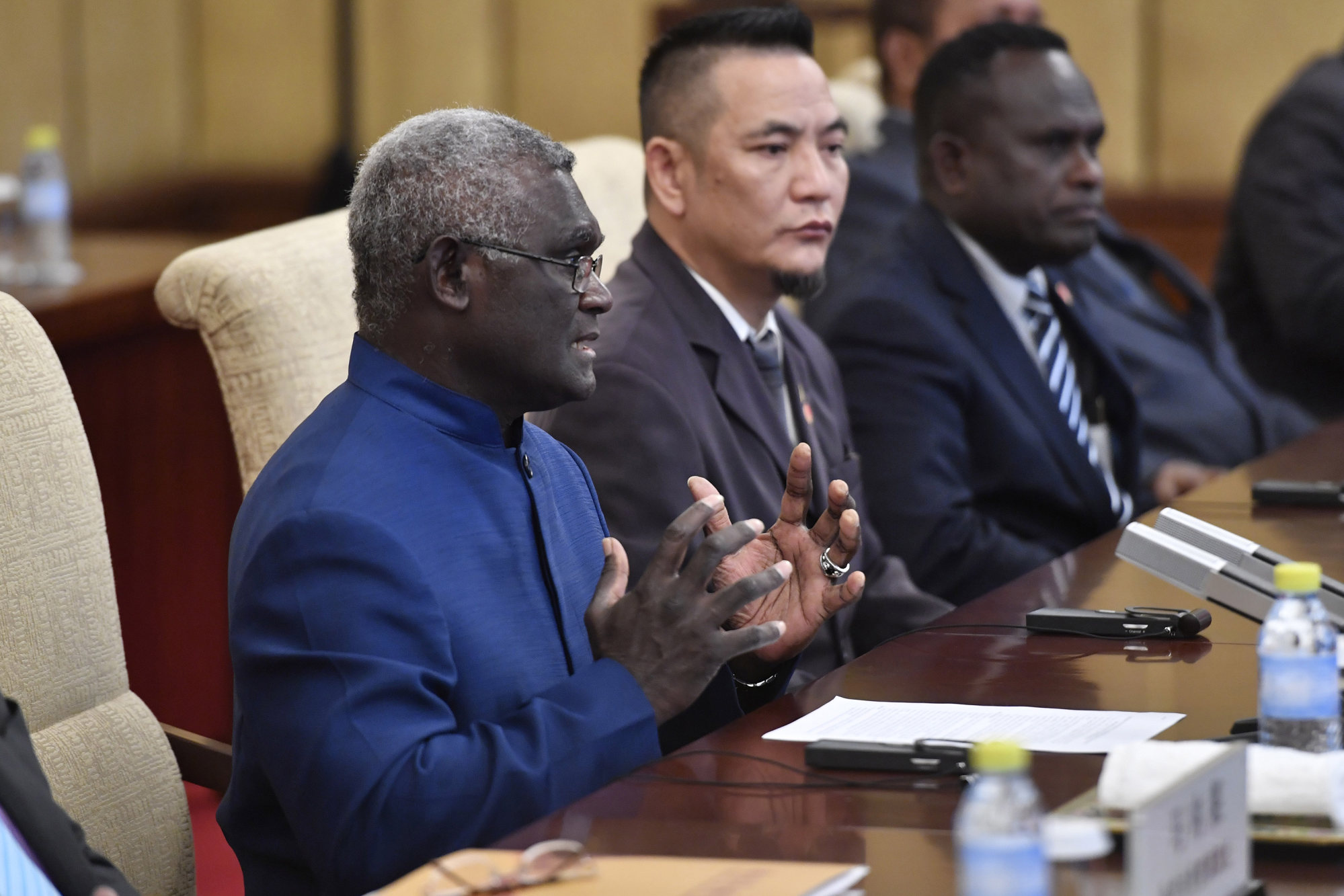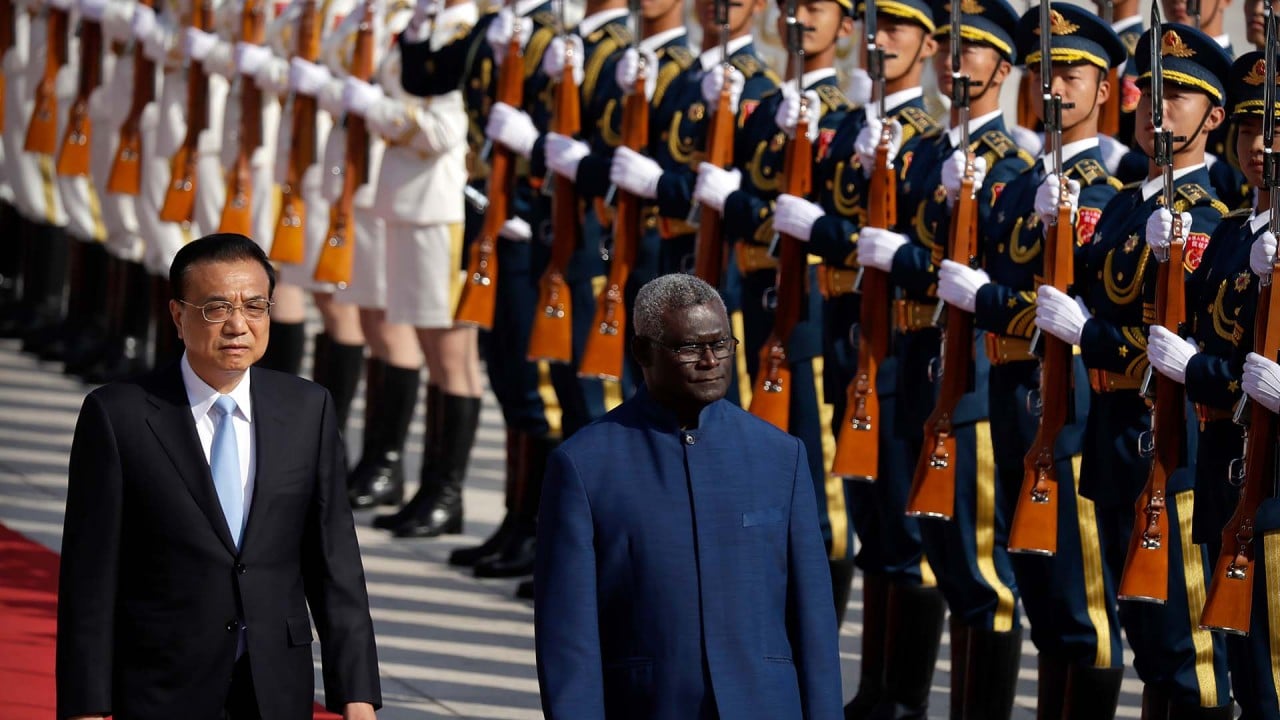
China-friendly Solomon Islands suspends all foreign naval visits as tensions rise
- US embassy in Australia said Washington had been notified of a ‘moratorium on all naval visits’ following last week’s incident
- Relations with the US have deteriorated since the Solomon Islands signed a contentious security pact with the Chinese government earlier this year
Solomon Islands has suspended visits from all foreign navies, citing a need to review approval processes, the country’s leader said on Tuesday, after a US coastguard was unable to refuel at its port.
The decision comes amid concerns over the Solomons’ growing ties with China in recent years, switching diplomatic recognition from Taipei to Beijing in 2019 and signing a security pact with the Asian power in April.
Western governments are wary that the islands could provide China with a military foothold in a strategically important part of the world.
In a speech on Tuesday welcoming a US hospital ship to the capital Honiara, Prime Minister Manasseh Sogavare said he was reviewing the process for allowing foreign military vessels to dock in the country.
“We have requested our partners to give us time to review and put in place our new processes before sending further requests for military vessels to enter the country,” Sogavare said.
He also denied reports that a US coastguard ship and a British navy vessel were not allowed to dock in the country, saying delays in processing their approvals meant both were turned away.
The US embassy in Canberra confirmed in a statement that it had received formal notification of the suspension of naval visits.
“The United States received formal notification from the Government of Solomon Islands regarding a moratorium on all naval visits, pending updates in protocol procedures,” an embassy spokeswoman said in a statement.
“The United States is disappointed that the US Coast Guard ship was not able to make this planned stop in Honiara,” the statement said.
“We will continue to closely monitor the situation.”
Sogavare did not outline the suspension’s length but promised a “smoother and timelier” approval process for naval visits following the review.
At the welcome ceremony for the US hospital ship Mercy, he invited the vessel to return during the Pacific Games, due to be hosted in the country in December next year.
The US embassy said the Mercy -- on a humanitarian mission to the country -- had received clearance to dock before the moratorium was put in place.
Solomon Islands may lean less on the West with new pact, but at what cost?
Sogavare has deepened his South Pacific nation’s ties with China’s autocratic government and proposed changing the constitution to delay scheduled elections.
The four-time leader has twice been ousted by votes of no confidence, and faced street protests against his decision to switch diplomatic recognition.
After widespread rioting in the capital Honiara demanding his ouster late last year, Sogavare signed a secretive security pact with Beijing that -- according to a leaked draft -- allows him to call in Chinese security forces to quell further unrest.
That has raised concerns in Canberra and Washington about the prospect of a Chinese military base being established or allowing China to develop dual-use facilities.
Sogavare has several times denied a foreign base would ever be built in his country.
Australia’s foreign affairs department has been contacted for comment.
Last week Sogavare’s office accused Western media organisations in the Solomons of “spreading anti-China sentiment”.

A statement issued by the office threatened to ban or deport reporters for “disrespectful and demeaning” coverage and said some foreign media were trying to “engineer regime change”.
White House National Security Council spokesman John Kirby said it was regrettable that “we’ve seen the Chinese try to bully and coerce nations throughout the Indo-Pacific to do their bidding and to serve what they believe their selfish national security interests are, rather than the broader interests of a free and open Indo-Pacific”.
Additional reporting by Bloomberg, Reuters

.png?itok=arIb17P0)
